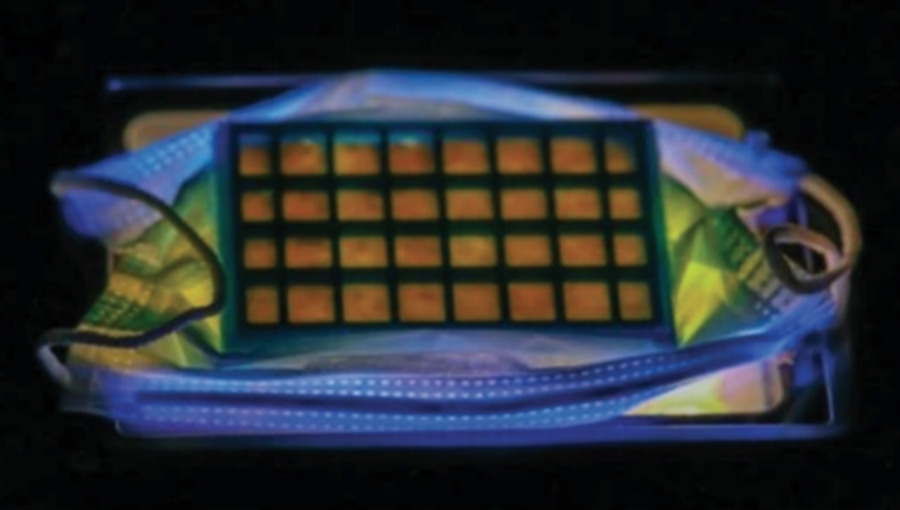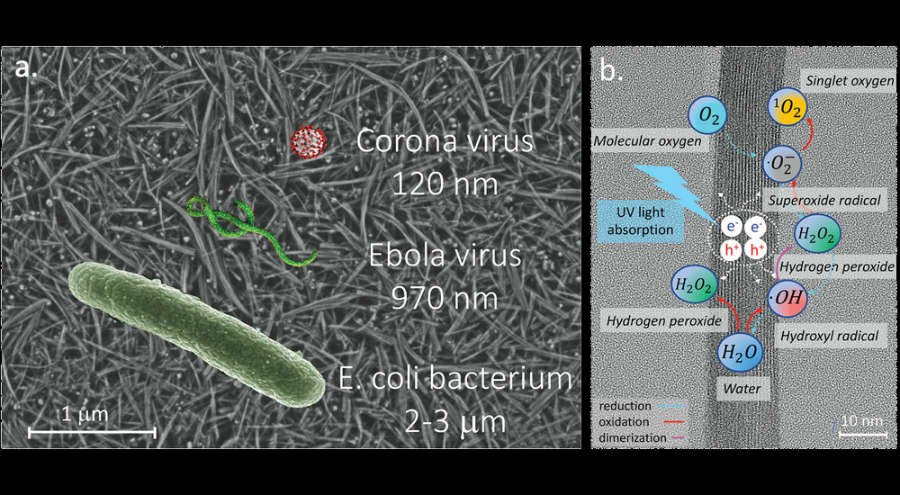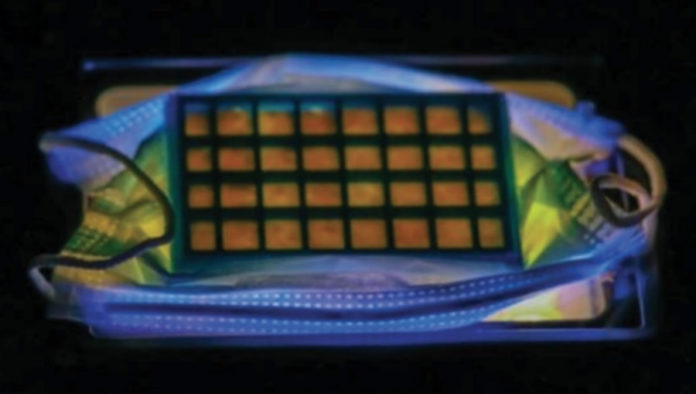
A reusable mask which has a filter paper made from Titanium oxide nanowire has been proven to trap and kill pathogens that may also be used against SARS-CoV-2 and EBOLA. Once used, this mask can be disinfected under ultraviolet (UV) light. EPFL laboratory led the research.
As the race to come up with better personal protective equipment (PPE) and special masks that can trap and kill pathogens is still on. Among those, the mass use of disposable paper masks with plastic microfibres is adding a bigger threat to the environment while spreading new contaminations. So in this pandemic, the need for a reusable, environmentally friendly mask that can actively trap and kill pathogens is crucial.
The novel filter paper
This is made with Titanium oxide nanowires. It is said to possess the ability to trap and kill both virus and bacteria. It is no different than the widely used filter papers in appearance except being far more effective in protection against germs.
Titanium oxide destroys pathogens by photocatalytic action. When exposed to UV light, the moisture in the filter paper become oxidising agents such as Hydrogen peroxide (H2O2) which is lethal to microorganisms.
According to László Forró, head of Laboratory of Physics of Complex Matter at EPFL, “Since our filter is exceptionally good at absorbing moisture, it can trap droplets that carry viruses and bacteria, this creates a favourable environment for the oxidation process, which is triggered by light.”
The pore sizes of the filter paper can easily be modified by changing thickness and density which can be small enough to trap many pathogens including SARS-CoV-2, EBOLA, E.coli and many other pathogens.

The study reveals that, E.coli, the most commonly tested pathogen in Biomedical research, had its DNA strands destroyed in seconds. And they believe the method would also kill SARS-CoV-2 and other pathogens. As the nanowires are calcined, it prevents being inhaled by the user and therefore safer to wear.
Advantages
The filter paper is easily mass-produced as the laboratory equipment itself could supply a massive 80,000 masks a month. As these are reusable, they can be disinfected and reused as many as 1000 times while reducing the adverse effects on the environment and the risk of recontamination. Apart from PPE, the research team believes that the technology could also be used in air conditioning and ventilation systems as well.
The research has been published in the journal, Advanced Functional Materials.

